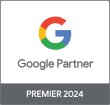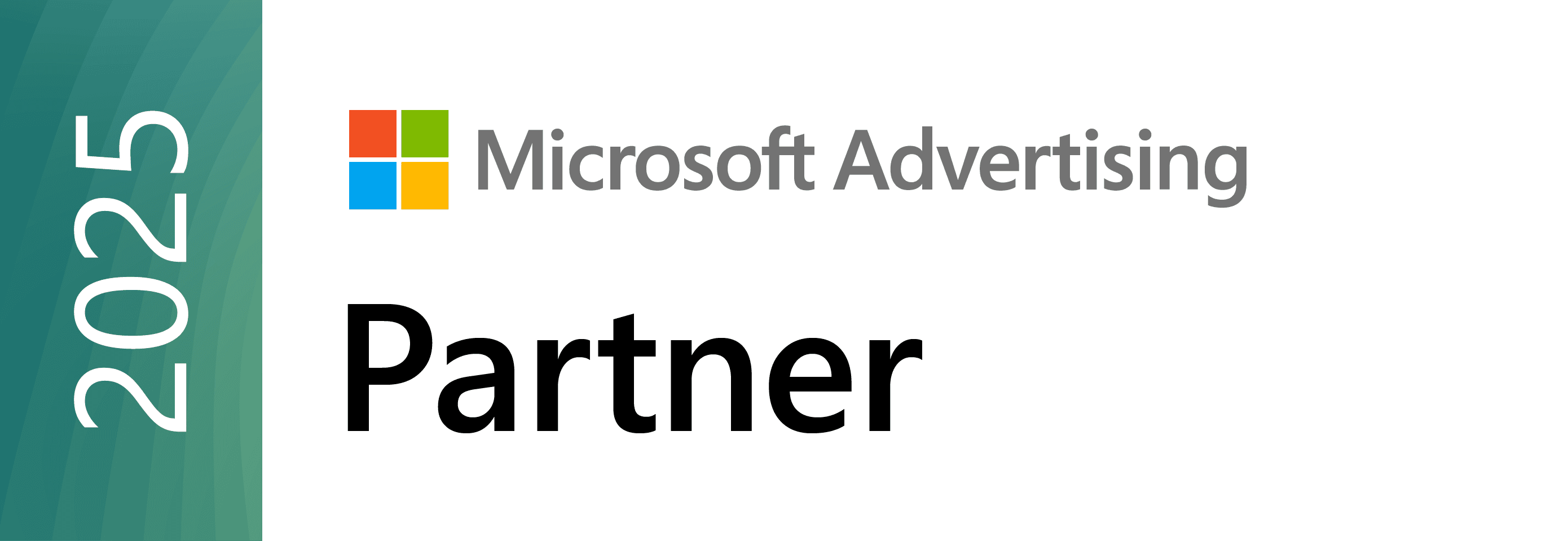Editor’s note: This article was originally published in 2020. It has been updated for accuracy and to reflect modern standards.
If your eCommerce business wants to scale up your pay-per-click (PPC) campaigns, you might wonder if PPC management software is the solution.
Everywhere you look, these tools promise simpler and quicker campaign management, automatic recommendations and bid adjustments, and savings on hiring costs for PPC experts.
But, is it too good to be true? Are PPC campaign management tools really better than hiring a PPC consultant?
In this blog, we’ll give you our honest take — based on more than a decade of eCommerce digital marketing experience — on whether you should use this software or invest in a human expert to manage your campaigns.
Get ready to learn:
- What PPC management software tools are
- What this software can (and can’t) do
- Which pros, cons, and uses cases you should consider
- And how to choose between PPC software and a real live strategist
What is PPC Management Software?
In short, these tools allow businesses to more easily monitor their paid search marketing campaigns and optimize their ad spend. In some cases, management software can even automate the entire process.
Running campaigns for a large number of SKUs and ad groups across different digital advertising platforms can be labor-intensive. When you have thousands of product ads running all at once, this software can make it easier to track and optimize your marketing spend individually across each SKU.
But, before we debate the effectiveness of these tools, let’s get on the same page with this brief introduction to the different advertising channels available to you, the most popular management tools for them, and the campaign types they can manage:
Top PPC Advertising Channels
Third-party, PPC management software provides integrations with the most widely used paid search advertising channels, including:
- Search engines (Google Ads, Bing Ads, Yahoo Ads)
- Social media (Facebook, Instagram)
- Online marketplaces (Amazon, Etsy)
- Remarketing on sites across the web
Popular PPC Management Software Tools
Some of the most well-known PPC management platforms that work across these channels include:
Types of PPC Ad Campaigns
Remember, every paid search channel offers its own types of campaigns and ad formats. Software companies build their tools around tracking and optimizing for these campaign types, which can include:
- Search ads campaigns
- Product listing ads (like Google Shopping Ads)
- Display ads
- Social ads
- Remarketing or retargeting ads
- Local service ads
- Gmail sponsored promotions
PPC Management Software vs. PPC Manager
Now that you know the basics, let’s compare these automated PPC tools against hiring an experienced expert.
One of PPC management software’s biggest appeals is its promise of automation.
Letting a computer take over the time-consuming parts of running paid ad campaigns can be incredibly appealing, especially for marketers overseeing several marketing initiatives. However, while artificial intelligence (AI) is becoming ever more abundant in our industry, relying on an AI tool isn’t necessarily the way to go when running your paid search campaigns.
Remember: To include a piece of software in your company’s stack, be sure it can provide a return on its cost. It should also seamlessly integrate with the needs of your business.
Without the right fit, your company will struggle to make any software programs deliver — when they should be making things easier! Many of these software tools offer more promises than what they actually deliver and are far more complicated to manage than they appear.
The question to ask: Based on your needs and goals, will software or an experienced strategist better help you:
- Make quicker optimizations
- Provide automatic recommendations
- Scale ad testing
- And more
Based on our experience, for most businesses, an experienced PPC consultant is the better choice.
Our Recommendation: Hire a Human, Armed With the Proper Tools
To be upfront: We don’t use PPC management software and tend to steer clients away from it.
Why?
We still see the best results from human-managed campaigns — and the creativity that goes into them. In reality, automated software can’t replicate the human-driven inspiration needed to perform effective analysis and create the compelling ad creative needed to drive conversions.
To get the best performance from your campaigns, you’re much better off with an experienced analyst. Unlike software, an analyst will consider all kinds of variables, such as:
- Business goals and needs
- Industry trends
- Competitors
- Current ads
- Historic performance
- Best products
- And more
Don’t forget: Your strategist is also the person who creates your strategic ad placements, with the most effective and targeted creative for your brand.
Simply put, this is a lot to ask from an automated tool. And, if you do, the results will often be less than what you had hoped.
That doesn’t mean we’re swearing off all software and tools completely! On the contrary, we always recommend that you use PPC research tools to inform your campaigns. These are a natural extension of what human analysts can do, in a way that improves the value of human-led maintenance.
For Google Ads, you can employ many keyword research tools (such as Ahrefs and SEMrush) to identify target keywords that you don’t see in Google’s Keyword Planner.
For Facebook Ads, we recommend Facebook Interest Explorer. This tool will suggest 25 audiences at a time — such as your competitors, public figures, books, blogs, and more — to aid in your research process.
Research tools like these can display a lot of information at once, reducing the time spent cross-checking keywords and interests to target. They also make your job as a PPC marketer much easier — complementing and augmenting (but not replacing!) the value humans provide.
PPC Management Tools: Pros & Cons
Are there any good use cases for implementing these management tools?
Let’s look at the pros and cons, based on our experience with other eCommerce businesses:
Pros:
1. Automated Bid Management Rules
Management software allows you to implement automated “if this, then that” rules by setting parameters for metrics like ad spend, campaign spend, and CPA. While these rules have to be developed by a person, the management tools can help in automatically adjusting them.
However, keep in mind that more advanced ad platforms like Facebook and Google already have real-time bid adjustment features built into their services.
2. Friendlier Reporting Interfaces
If you’re looking to save time, integrated reporting tools are a great help — and are a great solution if you need a certain type of interface beyond the native reporting on existing channels.
3. Multivariate A/B Testing at Scale
Some software tools are built for bid optimization and budget management at scale. Compare that to a system like Facebook, which can’t handle thousands of SKUs and campaigns.
While this is a great advantage for large enterprises, the average small business or marketing agency usually won’t need this service.
Cons:
1. Questionable Results
While it sounds great to hit “play” and let software do your advertising work for you, in our experience, the results from these campaigns usually aren’t very impressive. If you want to get good results with your PPC accounts, you still need significant human input, strategy, and analysis.
Note: Certain automated rules can be programmed natively into the platforms you’re already using.
2. Setup Requires Investment
When you factor in the pricing for each tool, integrating it into your training, and relying on it to perform well every time, the ROI doesn’t make sense for most online businesses.
3. Features Overlap with Native Channels
Management tools are third-party platforms, which means they are subject to the whims of native ad channels — which update all the time. In some cases, these native channels have the features needed to replace external software already built-in, including automated rules, reporting, and ad testing.
Facebook has multivariate internal testing options called Dynamic Ads. Google also has its own machine learning algorithm that can automate Google Ads campaigns (formerly Google Adwords) by mixing and matching creative, search terms, and copy. You can learn more about those features in our guide to Google Ads automation.
Software or Expert: Who You Gonna Call?
If you have thousands of SKUs you want advertised on Google Ads, management software may fit well with your needs — but they may also add additional complications to your paid management. In most cases, you’ll still need a paid strategist to assist and oversee it all.
If you don’t have that many products, these kinds of software tools will likely fail to deliver the results you want.
No business wants to pay the subscription or licensing costs for a tool that doesn’t deliver a return. Unless a tool fits naturally into your business’s workflow, it could be more work to maintain than it’s worth — which is AI automation isn’t always the way to go.
In today’s ecosystem, human creativity remains the most important factor for creating campaigns on Facebook or Google Ads. AI simply can’t replace it.
So, when managing your campaigns independently, we recommend that you simply use the internal account management tools already built into these platforms.
Need to advertise at scale? It’s probably time to hire an expert who understands how to both leverage these existing tools and optimize PPC ads for the best results. Fortunately, Inflow’s team of paid search experts is always ready to help.
Get started today with a free proposal, or check out our other resources below:












0 Comments